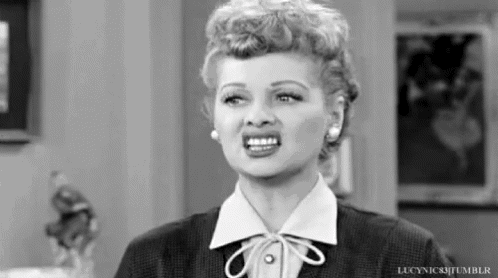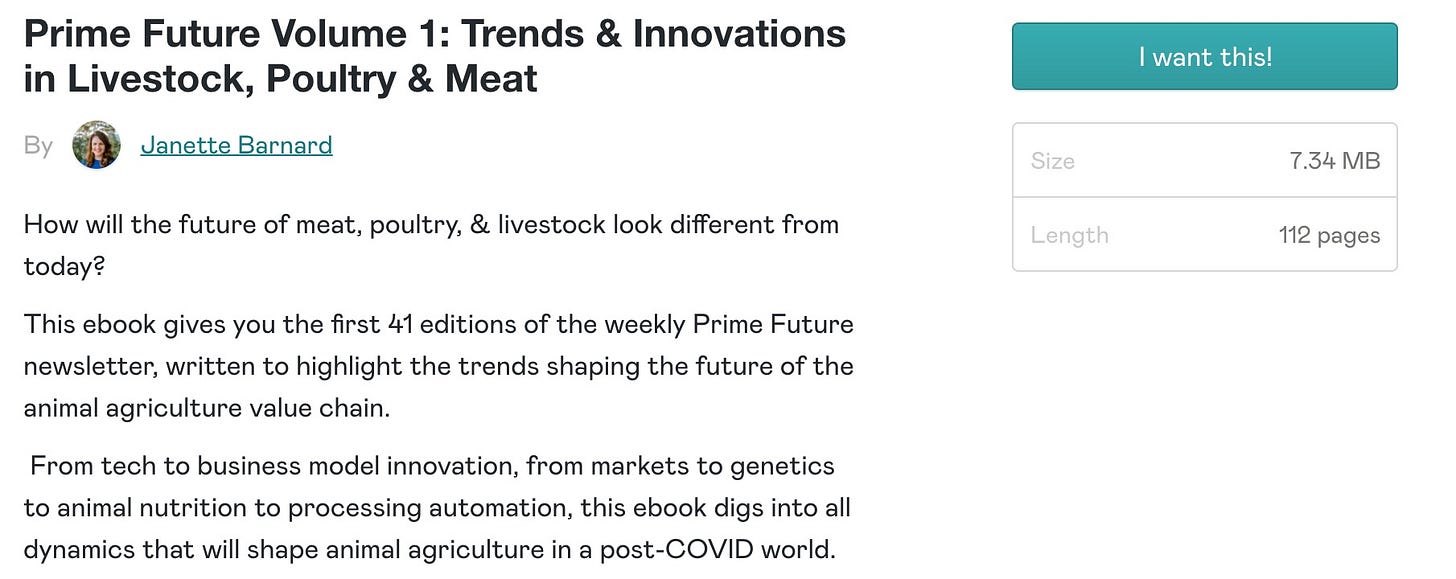Blockchain: all dressed up but where to go? 😕
Prime Future 79: the newsletter for innovators in livestock, meat, and dairy
Technology only has a fighting chance in agriculture when it definitively improves producer outcomes🤑 and/or consumer outcomes😃. Tech for the sake of tech is a road to nowhere.
Moreover, I get reeally skeptical when seemingly overnight cult-like obsessions form, as has happened in the second half of 2021 in the tech world with DAOs.
Unpopular opinion: DAOs are just blockchains all dressed up & looking for something to do on a Friday night.
What's a DAO? Decentralized Autonomous Organizations. (Oh that wasn't self-explanatory? Weird...)
Constitution DAO is probably the most public example, recently formed to purchase a copy of the US Constitution that was going up for auction. The group raised ~$40M which wasn’t quite enough to snag the prize, so the DAO was dissolved.
One definition of a DAO is, “a group organized around a mission that coordinates through a shared set of rules enforced on a blockchain." Hmmm. Here’s another perspective:
"Formal definitions are a good place to start when things are new, but there does not seem to be one for DAO—even though many attempts have been made. DAOs are a new type of organization and to understand the key characteristics of a DAO, it is helpful to review some blockchain fundamentals. A programmable blockchain, like Ethereum, enables applications to run on a decentralized trust system—removing our need to rely on any single actor as an intermediary of trust. Another way of looking at it, is that blockchains convert computing power into trust. Everyone is keeping an eye on everyone else, so that we can all keep performing economic activity on the network.
In truly decentralized systems, no one needs permission to join in on this action. The underlying consensus algorithm is publicly accessible. This means that anyone can become a network participant and help verify the behavior of other participants. This is the key innovation we have all gravitated towards in the crypto space. A DAO is an ecosystem with loose operational borders that comprise coordination tools.
The public blockchain act as a cozy blanket of trust that applications can be built on."
Decentralized ownership? Loose operational borders? Ummm….who’s gonna tell the tech bros this that they invented co-ops? Bravo.
Sure, these co-ops are on a blockchain, but the underlying concept is not new. And co-ops are fraught with traps, that’s why ag history is littered with failed co-ops.
Organizing humans around objectives is not a technology problem, it's a human problem.
(Though there have also been some wildly successful co-ops in ag & I’m keen to understand why that is - if you have insights into why organizations like Land O’Lakes, Fonterra, Tilamook, Cabot Cheese, etc have worked so well, please reach out.)
If co-ops are fraught with management & organizational risk (which they are), imagine further decentralizing decision making and planning. 😵💫 I recently read about a real estate DAO that would allow all members (anyone can join a DAO, that’s a key feature) to put forward potential real estate deals and then all members would vote on which deals the DAO would execute. YIKES. Wisdom of the crowd is a great concept only when the crowd is wise on a given topic.
This isn’t blockchain’s first run at insanity. Remember ICOs?
Around 2017 a phenomenon started where startups would issue 'Initial Coin Offerings' as a blockchain based way to raise capital, even if their product had nothing to do with blockchain. The google search history for ICOs tells the story:
My hypothesis is that DAOs are 2021's ICOs; a flash in the pan that we'll look back on only when the next blockchain craze comes around.
One hypothetical examples of DAOs was specific to D2C meat, which you know is a topic I’m here for - here’s how the author described it:
Going to a high-end butcher and buying your meat piecemeal might run you anywhere from $10/lb for ground to $30-40/lb for top cuts.
It’s much more financially manageable to buy a fraction of a cow from a ranch directly. That might cut your costs by 50-75%. But most people can’t eat a whole cow. So you team up with some friends and buy one together.
Let’s say you can buy a cow for $3,000. That’ll yield you around 450 lbs of meat, so you’re paying an average $6.66 per pound for everything from ground to filet.
You probably don’t need a whole cow at once though, so let’s say you buy ⅓ of one. So your cost is $1,000.
But instead of buying one directly, you buy a membership to the new CowDAO. CowDAO is a DAO focused on making high quality meat more accessible to all its members. Membership comes in the form of an NFT, which is initially priced at 0.07 ETH with a supply of 1,000. Pretty typical for a new NFT drop.
Your membership entitles you to lifetime discounts on the finest quality meat sourced from around the country, and eventually, free meat. Here’s how CowDAO does it.
(You can read the full piece here including the how’s, though I recommend popping some Tylenol first.)
Let’s dissect the CowDAO idea. So a lot of people want non-commodity meat but don't necessarily want to purchase a whole or half carcass? Yes and amen.
But you don't need a DAO to solve that problem as CrowdCow, ButcherBox, and Barn2Door are proving because…
…it’s not a technology problem, it’s a business model problem.
DAOs are tech for the sake of tech.
And so far, so is blockchain.
Buzz about blockchain seemed to really pick up around 2016. The ag industry speculated that blockchain would finally enable traceability in food value chains.
But traceability isn't a technology problem, its a market problem.
Who wants traceability and who is willing to pay for it? Five years later and in most markets, its still unclear.
Remember the hype cycle for emerging technologies:
So where are we in the blockchain hype cycle? It’s hard to say. I *do* think blockchain will find its footing, eventually. Why & when will it happen? No idea, except that it it’s likely to be when blockchain is the right solution for a customer problem, and the technology fits the business context. Not a second before then.
Yet given enough time, anything can happen. QR codes were invented in 1994 and hey, it only took 26 years and a global pandemic for that technology to hit it's stride.
My caveat to all the above is that not only am I by no means an expert, I did just purchase a couple of blockchain books to read over the holidays. So I reserve the right to change my mind. And let's just assume that because I've now taken such a public & negative view on DAOs, that they might actually become a real thing. 🙂







